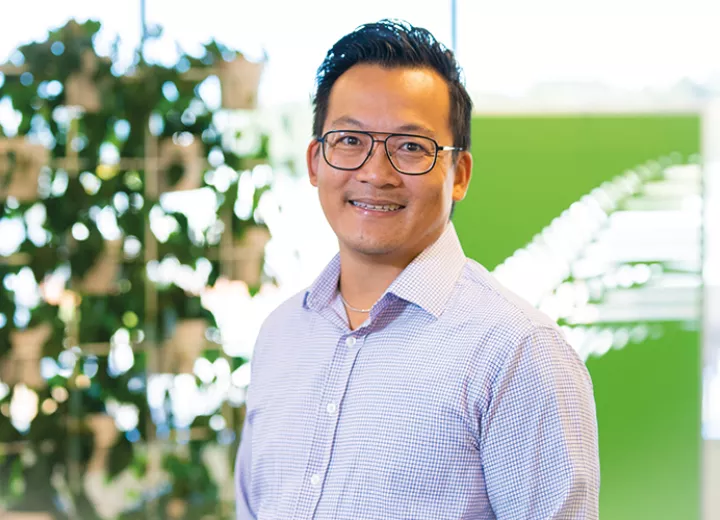Why did you become an environment/sustainability professional?
After doing an industrial placement in an environmental consultancy as part of my degree at the University of Bath, I wanted to find out more, so took more papers on the topic, sparking an interest in indigenous environmental perspectives. I then did a masters in environmental science at the University of Auckland.

What was your first job in this field?
Environmental scientist at a consultancy during my industrial placement.
How did you get your first role?
At the University of Bath we had a placements co-ordinator who could match interests with roles.
What does your current role involve?
My main role is at Kāinga Ora, the New Zealand public housing and urban development agency, where I oversee development and implementation of the sustainability programme. This involves integrating sustainability considerations in investment and planning decision-making processes, developing strategic directions, and piloting interventions.

How has your role changed/progressed over the past few years?
Sustainability is increasingly seen as a core issue, and funding is being funnelled into it. It’s been great seeing senior-level support for the work, and appreciation of the complexity of the issues.
What’s the best part of your work?
Seeing it ‘click’ with people – I find hesitance to act is driven more by uncertainty than by disagreement. I spend time trying to understand different perspectives and work out how to reframe the problems so they resonate.
What’s the hardest part of your job?
Knowing that the pace of change is nowhere near where it needs to be, ensuring this doesn’t lead to inertia, and taking the time to reflect on the change that we’ve seen.
What was the last development event you attended?
I lecture on sustainable business at Auckland University of Technology – as much a development opportunity for me as it is an education for my students.

What did you bring back to your job?
Lots of different perspectives.
What is/are the most important skill(s) for your job?
Listening skills, influence and communication. Also an ability to look at the whole-system impacts and communicate these interlinkages in a way that makes sense to a diverse audience.
“Hesitance to act is driven more by uncertainty than by disagreement”
Where do you see the profession going?
I hope people in our profession will be valued not just for our knowledge, but also for how we think and approach problems at a holistic and systems level.
Where would you like to be in five years’ time?
Ideally, we’ll have broad recognition that the systems we’ve created are flawed, and work will be underway to transform them. In reality, I think there will be more people in senior parts of these systems and structures who champion this change.
What advice would you give to someone entering the profession?
Don’t ever assume your ideas don’t count or won’t work, and ask prospective employers how committed they are to sustainability.
How do you use the IEMA Skills Map?
I love how it emphasises the core soft skills, and use it to articulate what it means to be a sustainability professional.
If you had to describe yourself in three words, what would they be?
Inquisitive, supportive and fun!
What motivates you?
Finding out why a problem exists, helping others see the ‘bigger picture’, and getting traction around an idea.
What would be your personal motto?
Don’t let the pursuit of perfection prevent action.
Greatest risk you have ever taken?
Moving to New Zealand without knowing anyone here.
If you could go back in history, who would you like to meet?









